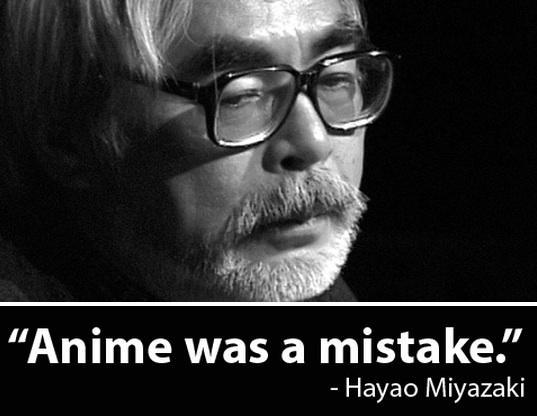August 21st, 2015
「Layer 01: Weird」
Anime Relations: Serial Experiments Lain
[list]

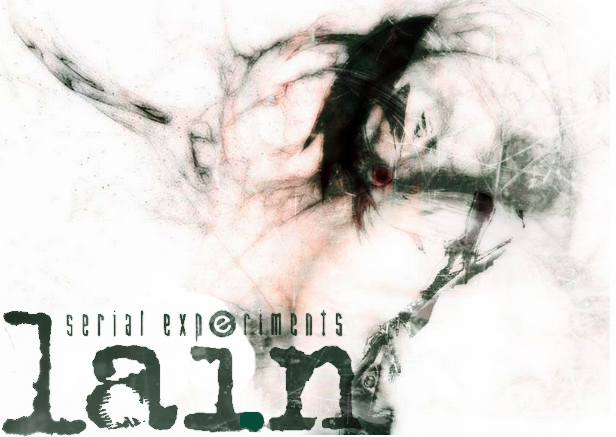
[i]Index[/i]
N/A - TBA
Serial Experiments Lain. The notoriously well known (or perhaps obscure?) avante-garde masterpiece. It is complex to say the least. The majority of what I will be going through consists of episode break ups. Perhaps my expressions and thoughts about each episode. So what I'm looking at it is perhaps a 13 post blog entry at the end of all of this. For whoever happens to read this; it is perhaps best if you have already watched Serial Experiments Lain first before following along my ramblings. How long this will take me is not really that much of a concern. From my perspective, the first watch is completely different from the first rewatch and to be honest, I am in no position to dig up this conjecture as I have not ever rewatched a series besides SEL and movies. I would like to point out right now that the dub vs sub does not apply to Lain as the main scenes of importance are not lost in translation or anything. Before I go into my expressions, thoughts, and thereof, I would like to give a bit of a backdrop on the most important staff members who made this unparalleled magnumopus.
Yoshitoshi ABe
The original creator, character designer, and key animator in Serial Experiments Lain is said to have inimitable works of art. He also happens to be my favorite animator. At the moment, the shows that I have watched with him included in the development have been outstanding and nothing but quality pieces of work. His works include the following:
Masahiko Murata
Makes up half of the directors for Serial Experiments Lain, although to be fair he was only directing for episode 7, and episode 10. He has a number of different Anime Staff Positions under his belt. Most notably:
Ruutarou Nakamura
He is the main director of Serial Experiments Lain. His majority of Anime Staff Positions are of him being the director. Some of these works include:
It is unfortunate that Nakamura passed away in 2013. It is also because of this reason that the development of Despera has been put on an indefinite hold for quite some time, much to my dismay. Thankfully, it was revealed in January of 2015 that Despera would be pushing forward, having found a new director to replace Nakamura.
Chiaki J. Konaka
Perhaps best known for creating the script for Serial Experiments Lain. He's also dabbled in tokusatsu. Some of his works include:
Serial Experiments Lain is an unusual show, that much is certain - and for a lot of reasons, not just one or two.The negative spacing in its visuals, characterization, pacing, incoherent narration (or lack thereof), and its all around aesthetic is enough for most people looking for a mindless fun anime to quickly give it a pass. Of course, this isn't to say that someone who is looking for an enjoyable witless anime will not find entertainment in Serial Experiments Lain because, to be frank, this is an anime that will most likely require a rewatch to fully understand it. To pick up the tidbits. The niche of each episode. It's references thereof. Heck, even the cryptic opening of Serial Experiments Lain has meaning and relevance at any give point in time. The phrase present day, present time represents the relevance of the show itself. Meaning that everything and anything found in the show is as relevant today, if not more, as it was when it first aired in 1998. In all actuality, one can find a gritty, cyberpunk-esque, eerie vibe in Serial Experiments Lain that may be pleasing to said viewer. Let me just be clear about something right now. It is very important to pay attention to facial expressions as one can see and sense the angst, fear, anxiety, and subtleties that are portrayed. Well, there is more to this than that. I will explain as it becomes more of importance - more so in regards to interpretation of what said viewer has just seen. As one will come to find out very early in the first episode, the internet is known as the Wired. There will be more of this to come.
Serial Experiments Lain opens with a harsh reality that is unfortunately true in this cruel world. Suicide. An awkward young girl, Chisa Yomoda, commits the act of suicide within the first few minutes of the first episode. Often being the subject of bullying, eschewment, and harassment, she hurls herself off a building in the middle of the night all whilst having an expression of elation and euphoria written across her face. The viewer is already given hints of the Wired and the physical manifestation of that of the real world. Her self-worth, crippling esteem, and the persecution she's endured have accumulated a toll on her. For Chisa, the dark cruel world was not a lively place to be in and that's just the harsh reality of this world.
I've mentioned this before but I will requote for the sake of further explaining the meaning of Chisa's suicide.
The real world isn't of importance to Lain. It is shoddy and she is basically invisible as a phsycial manifestation. However, her presence in the Wired is also very limited as she does not seem to stand out there either. Her introversion may have something to do with it, but this doesn't keep her exempt from having an adult mindset - of course, it's important to keep in mind that she is in fact a teenager. She is by no means literate in the technological aspect of the series but this changes in the future as one is able to see how quickly she is able to adapt to the internet, or Wired thereof in a most tech savvy manner. Her school life isn't there. Her walks to and from school could be replaced by blank spaces. The negative lighting that transpires over the course of these actions only amplify the dystopian nature of what seems like a post-apocalyptic world as if nothing has even ensued and/or begun. While all these scenes are occuring, one is able to hear the pulsating and vibrating power lines or telephone lines. It is important to note that the humming power lines are a recurring motif in this series. One that should not be disregarded as it represents inclination or compulsion of the Wired. The layered world that enshrouds the real world. This is not one motif to be discarded in other words.
The family of Lain Iwakura is a bit disfunctional and an awkward one to say the least. Her sister Mika? Nope. Disconnection - nothing there. Gives the slightest care in the world for anybody but herself. Utters a few words, and waltz out on her marry way. Miho, the mother? She's just as indifferent as Mika, if not more, in regards to Lain. The mother daughter relationship isn't there. The concern for her is not there. It's a one sided relationship, but it's very distant. Her father on the other hand is a bit more willing to actually interact with Lain. He has top notch software as he believes that if one should access the Wired, one should be able to do so with only the mightiest of the apparatus available in the market. Her father may have good intentions as he does have reason to believe that his actions will help Lain overcome her introvertedness as she spends more time on the Wired. I suppose he can only have faith in his actions in order to do something about it; however, it is a double edged sword as it her physical form is left behind to suffer as she delves into the Wired more so. All of this is a complete and stark contrast in comparison to Chisa Yomoda's suicide as her reason was personal - whereas Lain's familial life is disjointed and impractical.
Her name presumably being an allegory in regards to Alice in Wonderland (and with good reason too) is Lain Iwakura's only friend in school. Due to Lain Iwakura's introvertedness, she is not able to connect with anyone else in the world - from a literal perspective. Her home life is a mess. She can't talk to her sister. Her mother hardly interacts with them, in fact she seems to hold very little interest. Lain's school life isn't the greatest as her only savior is Alice. Even then, she has so much trouble being able to interact and socialize with Alice alone. Alice serves as the thin line that keeps Lain connected to the other two pleasant mutual friends, Juri and Reika. Despite this, Lain is not able to feel empathy towards them. While Alice means well and has good intentions in an attempt to make our protagonist feel very much welcomed in school, it doesn't seem to work out well as Lain feels very much isolated from her peers and, well, anyone else.
Last, and certainly not least, we have our female protagonist, Lain Iwakura and obviously the most important character in the show seeing as how she is also the titular character. The audience does not really get to know her right away and all that is there is left up to interpretation. Her only friend is Alice as previously mentioned beforehand. She is clearly introverted and has no social interaction neither in the real world nor in the Wired. The generalization made here is that she is disconnected from the world and isolation and solitude are commonly expressed in her demeanor. She doesn't seem to have any interests in anything. School seems ilke a bore. Her home life isn't exactly stable. She cannot interact with the Wired as well as Yasuo is able to do so. Basically, she has no presence at this particular moment. The only times when we see her facial expression change to that of which expresses empath is when she recieves an e-mail from Chisa. Both having had no presence, Lain is able to show sympathy for her - which is something she does not show to Alice, Juri, Reika, nor her family.
This ties in with the cast - and the themes presented are not hard to figure out for the very first episode. The theme presented here is connection - or in the most literal of definitions: what it means to humans. What it says about the nature of humanity. To be able to socially interact. To have a meaningful relationship. You can see this, or lack thereof, in Lain's awkward relationships. In her lack of interest in anything. She is clearly indifferent to everything and anything. Her disconnection to the people around her keeps her isolated and she is walking on thin ice. For example, take notice of Chisa Yomoda's suicide. She was driven to that point due to her lack of connection. And what exactly amplified this? The harassment she had to withstand. Why is it that Lain is walking on thin ice? It is because her presence might as well be identical to that of Chisa Yomoda's. Yasuo found his solution through the Wired and this is the reasoning he has conjectured to help his daughter with. If Lain can successfully integrate herself as part of the Wired, Yasuo will not have to fear the worse - as in Chisa's case. Lain's ability to completely discourse in the Wired is a hope that only her father has - and that alone is a reason enough that suffices for him.
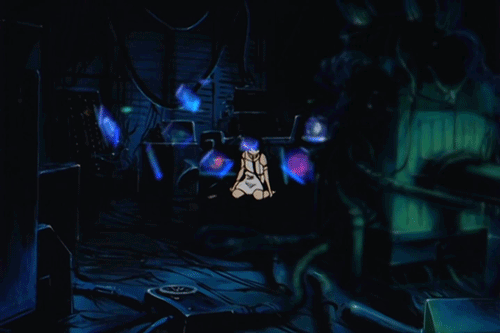
Along with the idea of connection comes the question of what exactly it means to die and what the consequences and or repercussions that come along with this. Chisa has died. That is factual.
But, did she really die if she is still sending messages, emails, and being able to interact with the rest of her peers?
Is it truly death when you have ceased to exist in the metaphysical world?
Think about it.
How many of your online friends have you met that you have never seen face to face?
Or take me for example. How many of you have ever talked to me?
Not one person on this site has talked to me face to face but does that mean that I exist?
Would any of you be able to tell the difference if I was actually a bot with human brain waves that could type out meaningful sentences and have coherent conversations?
Simply put, is it truly death once someones physical form has disappeared, but at the same time is able to interact with others?
In Chisa's case, she might as well not have committed suicide because her consciousness is still there able to interact with the lot of her peers and others. She's dead, but at the same time she's not. Her physical form may have dissipated but one cannot keep her data exempt. These themes are explored throughout the entirety of what is known as Serial Experiments Lain. It is not just looked at in episode 1, rather we get some insight of what is to come and how these themes constantly revolve around Lain. In the Wired, existence is a matter of perspective. The interpretation comes from the simple notice that physical manifestations mean nothing at all. Just look at Chisa. It doesn't mean a thing if you are still able to interact because when it's all said and done, everything said is about anything mentioned and is not upended. To be quite frank, the first episode leaves the viewer with desire. I say this because, being the first episode, it only gets weird from here on out. As previously menioned beforehand, we are given minimal information on Lain on purpose. We see more of Lain metamorphosing into something more in later episodes. This, of course, will be properly explained in due time. A few final thoughts on episode 1. While the audience doesn't know the specific reason as to why Chisa committed suicide, it should be noted that it is of actual importance. There is an enormous amount of similarities between Chisa and Lain. One of the greatest differences is that Lain had leverage by having Alice while Chisa did not have anybody.
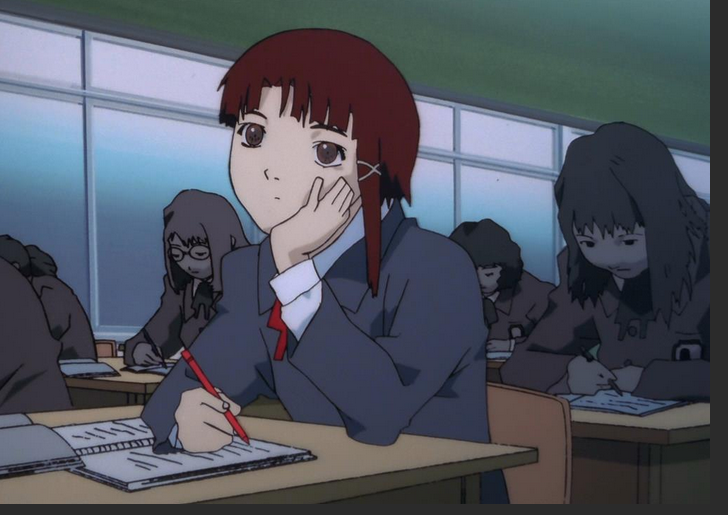

[/list]


[i]Index[/i]
N/A - TBA
Serial Experiments Lain. The notoriously well known (or perhaps obscure?) avante-garde masterpiece. It is complex to say the least. The majority of what I will be going through consists of episode break ups. Perhaps my expressions and thoughts about each episode. So what I'm looking at it is perhaps a 13 post blog entry at the end of all of this. For whoever happens to read this; it is perhaps best if you have already watched Serial Experiments Lain first before following along my ramblings. How long this will take me is not really that much of a concern. From my perspective, the first watch is completely different from the first rewatch and to be honest, I am in no position to dig up this conjecture as I have not ever rewatched a series besides SEL and movies. I would like to point out right now that the dub vs sub does not apply to Lain as the main scenes of importance are not lost in translation or anything. Before I go into my expressions, thoughts, and thereof, I would like to give a bit of a backdrop on the most important staff members who made this unparalleled magnumopus.
Yoshitoshi ABe
The original creator, character designer, and key animator in Serial Experiments Lain is said to have inimitable works of art. He also happens to be my favorite animator. At the moment, the shows that I have watched with him included in the development have been outstanding and nothing but quality pieces of work. His works include the following:
- Serial Experiments Lain
- Haibane Renmei (in my opinion, it is the second best anime)
- Welcome to the NHK
- Texhnolyze (definitely one of the most underrated)
- NieA Under 7 (though to be completely honest, this one is lackluster in comparison to his other works)
- Roman Album: Taishou Dennou Dadaism Emaki - otherwise known as Despera; however, this is debatable as it is not (yet) an anime but I won't dwell too much on this.
~
Masahiko Murata
Makes up half of the directors for Serial Experiments Lain, although to be fair he was only directing for episode 7, and episode 10. He has a number of different Anime Staff Positions under his belt. Most notably:
- Serial Experiments Lain
- 5 of the Naruto Shippuden movies... heh...
- Baby Steps
~
Ruutarou Nakamura
He is the main director of Serial Experiments Lain. His majority of Anime Staff Positions are of him being the director. Some of these works include:
- Serial Experiments Lain
- Kino no Tabi: The Beautiful World
- Colorful
- Shinreigari
It is unfortunate that Nakamura passed away in 2013. It is also because of this reason that the development of Despera has been put on an indefinite hold for quite some time, much to my dismay. Thankfully, it was revealed in January of 2015 that Despera would be pushing forward, having found a new director to replace Nakamura.
~
Chiaki J. Konaka
Perhaps best known for creating the script for Serial Experiments Lain. He's also dabbled in tokusatsu. Some of his works include:
- Serial Experiments Lain
- Texhnolyze
- Ghost Hound
- Despera
~
Serial Experiments Lain is an unusual show, that much is certain - and for a lot of reasons, not just one or two.The negative spacing in its visuals, characterization, pacing, incoherent narration (or lack thereof), and its all around aesthetic is enough for most people looking for a mindless fun anime to quickly give it a pass. Of course, this isn't to say that someone who is looking for an enjoyable witless anime will not find entertainment in Serial Experiments Lain because, to be frank, this is an anime that will most likely require a rewatch to fully understand it. To pick up the tidbits. The niche of each episode. It's references thereof. Heck, even the cryptic opening of Serial Experiments Lain has meaning and relevance at any give point in time. The phrase present day, present time represents the relevance of the show itself. Meaning that everything and anything found in the show is as relevant today, if not more, as it was when it first aired in 1998. In all actuality, one can find a gritty, cyberpunk-esque, eerie vibe in Serial Experiments Lain that may be pleasing to said viewer. Let me just be clear about something right now. It is very important to pay attention to facial expressions as one can see and sense the angst, fear, anxiety, and subtleties that are portrayed. Well, there is more to this than that. I will explain as it becomes more of importance - more so in regards to interpretation of what said viewer has just seen. As one will come to find out very early in the first episode, the internet is known as the Wired. There will be more of this to come.
~
Chisa Yomoda
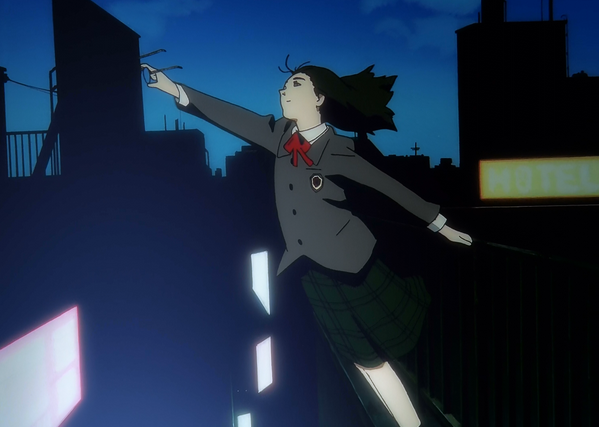

Serial Experiments Lain opens with a harsh reality that is unfortunately true in this cruel world. Suicide. An awkward young girl, Chisa Yomoda, commits the act of suicide within the first few minutes of the first episode. Often being the subject of bullying, eschewment, and harassment, she hurls herself off a building in the middle of the night all whilst having an expression of elation and euphoria written across her face. The viewer is already given hints of the Wired and the physical manifestation of that of the real world. Her self-worth, crippling esteem, and the persecution she's endured have accumulated a toll on her. For Chisa, the dark cruel world was not a lively place to be in and that's just the harsh reality of this world.
I've mentioned this before but I will requote for the sake of further explaining the meaning of Chisa's suicide.
If I recall correctly, Japan has one, if not the highest, suicide rates in the world. I'm not entirely sure how this figure compares back to when S.E.L was first airing, but this is a metaphor that emphasizes this figure of suicide rates. Once again back to the topic of isolation. The "Wired" most definitely has had a huge impact on how people interact with others and it's because of this that many people bring their concerns of whether or not the youth - and future generations for that matter - will be able to have meaningful relationships, if they will be able to live normally as they previously have before the internet came about. If I had to summarize what the anime is trying to accomplish at the end of the series, it's that all of the themes and everything about this is just one elaborate metaphor that encases the alienation of the youth in a world where technology has become more important than ever before compared to the times of back then.
~
Schooling
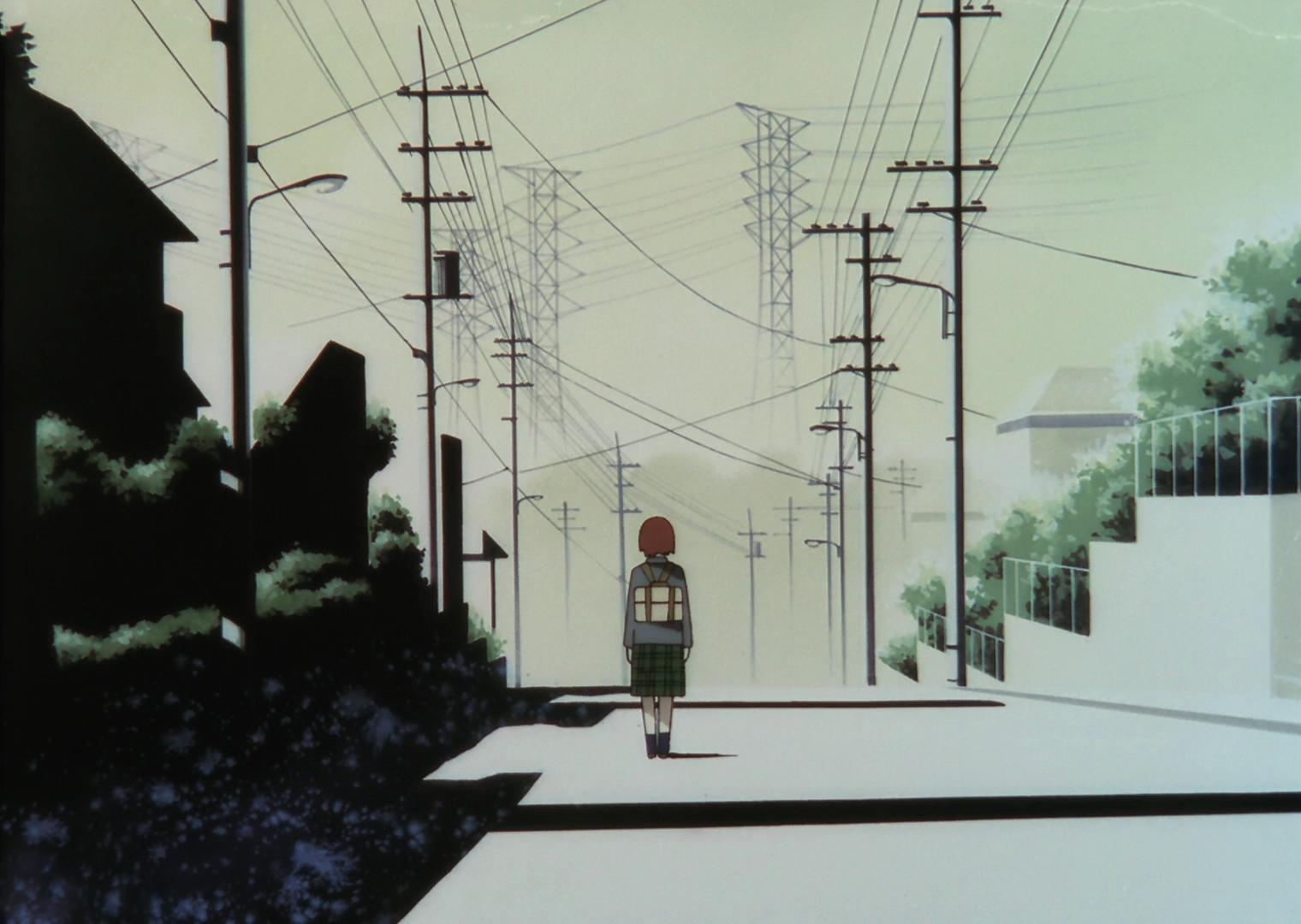

The real world isn't of importance to Lain. It is shoddy and she is basically invisible as a phsycial manifestation. However, her presence in the Wired is also very limited as she does not seem to stand out there either. Her introversion may have something to do with it, but this doesn't keep her exempt from having an adult mindset - of course, it's important to keep in mind that she is in fact a teenager. She is by no means literate in the technological aspect of the series but this changes in the future as one is able to see how quickly she is able to adapt to the internet, or Wired thereof in a most tech savvy manner. Her school life isn't there. Her walks to and from school could be replaced by blank spaces. The negative lighting that transpires over the course of these actions only amplify the dystopian nature of what seems like a post-apocalyptic world as if nothing has even ensued and/or begun. While all these scenes are occuring, one is able to hear the pulsating and vibrating power lines or telephone lines. It is important to note that the humming power lines are a recurring motif in this series. One that should not be disregarded as it represents inclination or compulsion of the Wired. The layered world that enshrouds the real world. This is not one motif to be discarded in other words.
~
Familial Life
The family of Lain Iwakura is a bit disfunctional and an awkward one to say the least. Her sister Mika? Nope. Disconnection - nothing there. Gives the slightest care in the world for anybody but herself. Utters a few words, and waltz out on her marry way. Miho, the mother? She's just as indifferent as Mika, if not more, in regards to Lain. The mother daughter relationship isn't there. The concern for her is not there. It's a one sided relationship, but it's very distant. Her father on the other hand is a bit more willing to actually interact with Lain. He has top notch software as he believes that if one should access the Wired, one should be able to do so with only the mightiest of the apparatus available in the market. Her father may have good intentions as he does have reason to believe that his actions will help Lain overcome her introvertedness as she spends more time on the Wired. I suppose he can only have faith in his actions in order to do something about it; however, it is a double edged sword as it her physical form is left behind to suffer as she delves into the Wired more so. All of this is a complete and stark contrast in comparison to Chisa Yomoda's suicide as her reason was personal - whereas Lain's familial life is disjointed and impractical.
Next, we have Mizuki Alice.


Her name presumably being an allegory in regards to Alice in Wonderland (and with good reason too) is Lain Iwakura's only friend in school. Due to Lain Iwakura's introvertedness, she is not able to connect with anyone else in the world - from a literal perspective. Her home life is a mess. She can't talk to her sister. Her mother hardly interacts with them, in fact she seems to hold very little interest. Lain's school life isn't the greatest as her only savior is Alice. Even then, she has so much trouble being able to interact and socialize with Alice alone. Alice serves as the thin line that keeps Lain connected to the other two pleasant mutual friends, Juri and Reika. Despite this, Lain is not able to feel empathy towards them. While Alice means well and has good intentions in an attempt to make our protagonist feel very much welcomed in school, it doesn't seem to work out well as Lain feels very much isolated from her peers and, well, anyone else.
Last, and certainly not least, we have our female protagonist, Lain Iwakura and obviously the most important character in the show seeing as how she is also the titular character. The audience does not really get to know her right away and all that is there is left up to interpretation. Her only friend is Alice as previously mentioned beforehand. She is clearly introverted and has no social interaction neither in the real world nor in the Wired. The generalization made here is that she is disconnected from the world and isolation and solitude are commonly expressed in her demeanor. She doesn't seem to have any interests in anything. School seems ilke a bore. Her home life isn't exactly stable. She cannot interact with the Wired as well as Yasuo is able to do so. Basically, she has no presence at this particular moment. The only times when we see her facial expression change to that of which expresses empath is when she recieves an e-mail from Chisa. Both having had no presence, Lain is able to show sympathy for her - which is something she does not show to Alice, Juri, Reika, nor her family.
~
Wired
This ties in with the cast - and the themes presented are not hard to figure out for the very first episode. The theme presented here is connection - or in the most literal of definitions: what it means to humans. What it says about the nature of humanity. To be able to socially interact. To have a meaningful relationship. You can see this, or lack thereof, in Lain's awkward relationships. In her lack of interest in anything. She is clearly indifferent to everything and anything. Her disconnection to the people around her keeps her isolated and she is walking on thin ice. For example, take notice of Chisa Yomoda's suicide. She was driven to that point due to her lack of connection. And what exactly amplified this? The harassment she had to withstand. Why is it that Lain is walking on thin ice? It is because her presence might as well be identical to that of Chisa Yomoda's. Yasuo found his solution through the Wired and this is the reasoning he has conjectured to help his daughter with. If Lain can successfully integrate herself as part of the Wired, Yasuo will not have to fear the worse - as in Chisa's case. Lain's ability to completely discourse in the Wired is a hope that only her father has - and that alone is a reason enough that suffices for him.

Along with the idea of connection comes the question of what exactly it means to die and what the consequences and or repercussions that come along with this. Chisa has died. That is factual.
But, did she really die if she is still sending messages, emails, and being able to interact with the rest of her peers?
Is it truly death when you have ceased to exist in the metaphysical world?
Think about it.
How many of your online friends have you met that you have never seen face to face?
Or take me for example. How many of you have ever talked to me?
Not one person on this site has talked to me face to face but does that mean that I exist?
Would any of you be able to tell the difference if I was actually a bot with human brain waves that could type out meaningful sentences and have coherent conversations?
Simply put, is it truly death once someones physical form has disappeared, but at the same time is able to interact with others?
In Chisa's case, she might as well not have committed suicide because her consciousness is still there able to interact with the lot of her peers and others. She's dead, but at the same time she's not. Her physical form may have dissipated but one cannot keep her data exempt. These themes are explored throughout the entirety of what is known as Serial Experiments Lain. It is not just looked at in episode 1, rather we get some insight of what is to come and how these themes constantly revolve around Lain. In the Wired, existence is a matter of perspective. The interpretation comes from the simple notice that physical manifestations mean nothing at all. Just look at Chisa. It doesn't mean a thing if you are still able to interact because when it's all said and done, everything said is about anything mentioned and is not upended. To be quite frank, the first episode leaves the viewer with desire. I say this because, being the first episode, it only gets weird from here on out. As previously menioned beforehand, we are given minimal information on Lain on purpose. We see more of Lain metamorphosing into something more in later episodes. This, of course, will be properly explained in due time. A few final thoughts on episode 1. While the audience doesn't know the specific reason as to why Chisa committed suicide, it should be noted that it is of actual importance. There is an enormous amount of similarities between Chisa and Lain. One of the greatest differences is that Lain had leverage by having Alice while Chisa did not have anybody.

~
Layer 01: Weird
Chiaki J. Konaka relates a story of relevance constructed on the sole basis of fiction.
Nevertheless, it is symbolic of certain phenomena base in the analog - this case being reality.
Furthermore, his prediction that when words have been amplified, they will transform into truth.
Every occurance only emphasizes the existence of an entity.
As individuals separate from one another, they are left with the desire to belong to a niche.
To be of social importance. However, that is but an egotistical concept. One that provides no mutual understanding. The understanding will come from the necessity to recognize - brain synapses - that every one of us is connected in a logical yet chaotic manner.
[i]Lain is lain. lain is lain.
Each is separate - yet they are one.
By connecting, humanity gains awareness.
By connecting, humans no longer remain as endpoints.
A "terminus" in this case.
Humans become a junction to another point.
The ability to connect is the ability to continue - they are one and the same.
This not only applies to the connection of axial coordinates but also temporal coordinates as well.
Therefore, at the time when conscious, intentional connection is made, surely the dead will rise.
They will rise from their intended place.
Appearing at the time coordinate of the connection’s origin.
In that moment, the realization will dawn that the time in which we inhabit our physical bodies is but the starting point of a connection, and the very meaning of possessing a physical body at shall be questioned.
What one must fear is this moment.
What one must fear - is disconnection.
Recognize that we're all connected.
Serialize thyself.
Nevertheless, it is symbolic of certain phenomena base in the analog - this case being reality.
Furthermore, his prediction that when words have been amplified, they will transform into truth.
Every occurance only emphasizes the existence of an entity.
As individuals separate from one another, they are left with the desire to belong to a niche.
To be of social importance. However, that is but an egotistical concept. One that provides no mutual understanding. The understanding will come from the necessity to recognize - brain synapses - that every one of us is connected in a logical yet chaotic manner.
~
[i]Lain is lain. lain is lain.
Each is separate - yet they are one.
By connecting, humanity gains awareness.
By connecting, humans no longer remain as endpoints.
A "terminus" in this case.
Humans become a junction to another point.
The ability to connect is the ability to continue - they are one and the same.
This not only applies to the connection of axial coordinates but also temporal coordinates as well.
Therefore, at the time when conscious, intentional connection is made, surely the dead will rise.
They will rise from their intended place.
Appearing at the time coordinate of the connection’s origin.
In that moment, the realization will dawn that the time in which we inhabit our physical bodies is but the starting point of a connection, and the very meaning of possessing a physical body at shall be questioned.
What one must fear is this moment.
What one must fear - is disconnection.
~
Recognize that we're all connected.
Serialize thyself.

[/list]
Posted by Sirani | Aug 21, 2015 8:40 PM | 1 comments
August 15th, 2015
Quibbles
Anime Relations: Shinseiki Evangelion, Kimi ga Nozomu Eien, Love Hina, Serial Experiments Lain, Shakugan no Shana, Zero no Tsukaima, Urusei Yatsura, Baccano!, School Days, Toradora!, Highschool of the Dead, Jinrui wa Suitai Shimashita

Every season in anime has it. There isn't a single season in anime where ecchi and harem aren't present. Why is this? Yes, this will always be present in anime whether anyone likes it or not. No, it just won't disappear because there is such a huge fanbase for the genre.
So, Internet, today I would like to present my ideas and how I feel overall about the genre of Ecchi and Harem as well as discuss cliches and the future of anime in general. In the anime industry, one will find ecchi to be most definitely prevalent. Many people like it. Many people don't. If you like it great. If you don't like it, there is always something else. I'm one who does not like it. This blog post will look at a variety of perceptions and not just be limited to one minor niche. So for the sake of having a topic to work with to excuse my scrambled thoughts, I've titled this post as Quibbles as to describe that everything in this post is most definitely a glimpse of my thoughts that are enshrouded with criticism in regards to the anime medium. So yeah, basically a rant. For those who already know me, you will know that ecchi and harem as well as hentai anime rank the lowest of the low in my book.
I apologize in advance to my future self (or others) if I offend.
I will try my best to present an unbiased opinion without offending those who do enjoy watching shows of this nature.
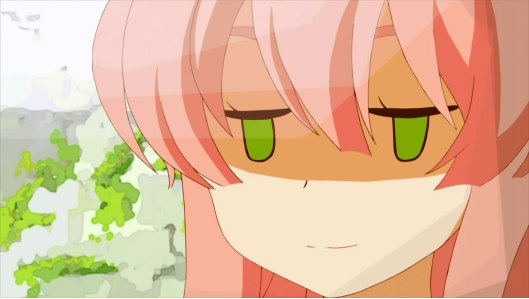
I will try my best to present an unbiased opinion without offending those who do enjoy watching shows of this nature.

The subjective problems that I will mention do not particularly have an order as to which is the biggest number one problem or what is the least of my concerns. No, in this (possible) rant, I will discuss them in no particular order and that which I see as an issue. Being an anime watcher, one will eventually run into similar situations and/or gags in anime - eventually. At first, depending on how your first several anime were, you won't give the slightest care in the world because what you are watching is completely new. It is completely refreshing. It's something that you've never seen before because it is foreign and unfamiliar to you. This is always a good thing if you liked your first anime that is and if you loved it enough, you might just ask yourself. "wow, this was really good, where can I find more of this?" and this will in turn, lead you to some other similar anime. That's not a bad thing, no. Let's say your first anime was Highschool Of The Dead. That might perhaps lead you to other anime that has a school and ecchi setting. It might even become your favorite genre down the road for all we know. The problem here is going to be that eventually, you'll find it to be repetitive or perhaps even boring. This may not exactly be true for some people. I suppose it would depend on how tolerant you are or how easily pleased you are. It really depends on the person. Now the point I'm trying to make isn't that it's bad to like ecchi, no. What I'm saying in this context is that many people dislike cliche and I'm no exception, however, I can't exactly call others out on liking them because every medium out there will have tropes. It will have cliche. It isn't just going to be anime because that certainly isn't the case.
What's the problem with cliches?
Well it's like I mentioned. It doesn't necessarily have to mean that it's an issue because not every one person is going to like the same thing and others may be more tolerant to one specific trope (or all) than the next person. Personally, cliches tend to make the anime predictable and having foreseeable endings are not exactly what I like to call a [i]great[/i] conclusion. Allow me to give one example.
- Girl A likes Boy A.
- Girl B also likes Boy A.
- Girl C also likes Boy A.
- Boy A has done nothing and shows little to no qualities to offer.
Which anime do you suppose I was just talking about? That's my quibble with harems in general because I could list more than enough anime to get my point across that predictable anime often become cookie cutter and nothing more. Well perhaps that's a bit harsh. My point being is that certain genres or cliches follow a formulaic niche that doesn't allow the viewer to form a conjecture that isn't conventional. In the case of harems, you will certainly find this to be true. Almost every harem ever created follows this process because in the end, not one main character ends up with the male (or female if dealing with a reverse harem) main character. So with this in mind, one already speculates what the outcome would be like and if it holds to be true, well, can it really be said that you fully enjoyed the show when it could have surprised you and perhaps allow you to further enjoy it? This is just my personal opinion after all, it doesn't necessarily mean that predictable shows are bad, because hey, I like a good ending, despite however predictable it may be, too.
It's just that I personally would prefer something more out of the box.
Something that makes me go "wow, I didn't see that coming" or pretty much something that is out of the ordinary, you know?
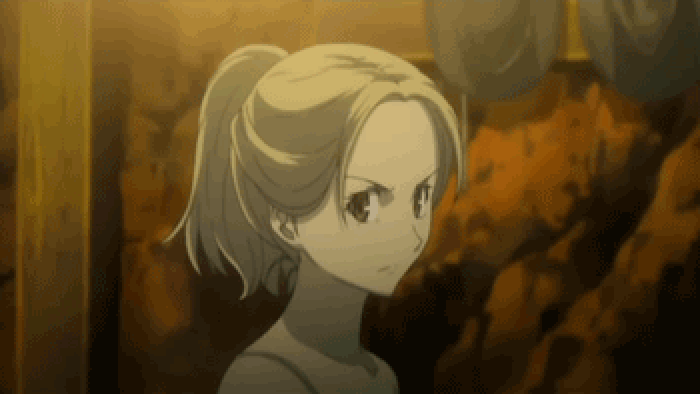
Something that makes me go "wow, I didn't see that coming" or pretty much something that is out of the ordinary, you know?

While harems may have this formulaic process, it is by no means the only genre that is guilty of falling into the well known anime tropes that exist in the medium. One could say that harems and ecchi come hand in hand. While ecchi anime do not necessarily have to be in harems, it is most prevalent in said genre. The reason being for my dislike of the ecchi genre is a simple and straightforward one. I'm not one who watches anime for fanservice. Now the question as to why ecchi is extremely popular is also a very straightforward one. It's a no brainer. It's because anime caters to the fandom.
Whoa, wait a minute, are you implying that because ecchi anime caters to the fandom that said genre is a tasteless genre/theme to watch, Sirani?
Of course not. All I'm saying here is that because it caters to the fandom that ecchi will always be prevalent in the anime industry. Those who enjoy it, good for you. Those who do not - well, we will still await for the spiritual successor of Serial Experiments Lain known as Despera. A bit off topic, but the hype for it so unreal that I will cry tears of joy the day I first watch it... or if I had a copy of the full written material that would be more than enough to suffice my undying love for it. Anyways, I would like to state that the term, otaku, is used in a negative connotation in Japan where it classifies a number of fans who obsess over something. That something need not be specifically regarded as anime - though it typically is. This is where my thoughts lie. Ecchi anime are generally compared to anime of other genres. Those other genres may contain an actual story and setting. According to this speculation, ecchi anime would generally fall short in the quality section. Unsurprisingly, this probably leads people to turn the other way.
This isn't to say that all ecchi do not have a story, but that's usually not the point of why you're watching ecchi in the first place, now is it?

My cynicism is showing, but I'm very certain ecchi hentai to be more specific anime are the easiest to make a quick buck out of because mangakas know that the male audience would be more than likely to buy merchandise from their favorite ecchi shows instead of their female counterpart. This is why anime is said to cater to the otaku. Going along with the aforementioned formulaic open ended shows in harems as to why they do that: they do that because what's better than one successful cour? A second cour that panders to the intended audience. Cliches are natural however. All art forms are susceptible to them and there really is no way to get around these. In the case of anime you'll see these constantly. Take tsunderes for example. The term became popular in the early 2000's thanks to the visual novel Kimi ga Nozomu Eien also known as Rumbling Hearts. The very first anime that had one was Urusei Yatsura; however, it never became a popular trend until Shana from Shakugan no Shana kick started it. That was when the trend really began and that is the reason why the studio pidgeonholed Rei Kugimiya so as to voice other sets of characters that fall within the same set of traits - physique, personality, etc. (i.e Toradora, Zero no Tsukaima)
~
It is because of this and its fans that cause anime to be viewed in such an offensive way. "Isn't that just porn?" Well, no. It's no wonder a lot of westerners are inclined to believe that anime is for "weirdos" or that it's just "cartoon porn." I'll quote a famed director and animator known throughout the industry.
Hiyao Miyazaki
"[u]Anime suffers because the industry is full of otaku.[/u]"[/b]
"[u]Anime suffers because the industry is full of otaku.[/u]"[/b]
And you know what, to an extent, I agree with the guy, although that may seem nihilistic to quite a few people, but that's not the point I'm trying to make here. The point made is that someone well known in the anime industry has spoken up about it and that alone makes it noteworthy. There is even a troll quote of Hayao saying that anime was a mistake.
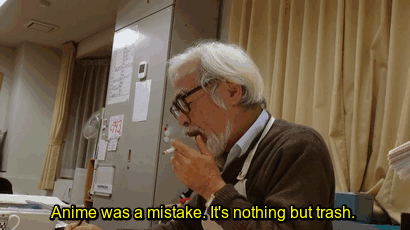

~
This has a lot to do with the Japanese inferiority mindset of otakus. Harems are generally precarious in its social dynamics when presented and it's beta-male character lead are pathologically terror-stricken to even come close to the opposite gender. And you know, I presume that because the harem has to be maintained that the main character never gets his own personality. His own merits. His own defining trait. I suppose this is why the harem works. The harem is lost if a confident, outgoing, showy male lead is presented and chooses one of the characters to go out with. Done. Ended. No more. Of course, there are always exceptions such as School Days or Love Hina but that point is moot because harems are generally formulaic in nature. Catering to the otaku is the biggest reason it sells and it doesn't even have to be aimed at them for it to sell. It just does because it is sexualized. "[i]Hey, this beta-male main character is totally lame. I'm way better than him or her in the case of reverse harems (which is something I don't hear/see much of) so I can see myself in that situation with my own harem.[/i]" Self insertion isn't contrived. Of course this is my speculation of why it sells and I wouldn't go as far as to say that it isn't dubious.
To add to the whole supposed dilemma, it could be said that:
- Anime is dying.
- or
- Anime is evolving.
See a lot of the ideas being interchanged can be summed up so simple that it could be overlooked. It's a matter of where the fandom is concerned. That just so happens to lie with other schemes that fans choose to embrace. That's as far as the scope of this entire post goes. It's almost like a clash of generations so to speak. The older generation of viewers have an idea of what great anime is while the younger generation has another idea of what it is. This is all just speculation of course but that's almost the way it seems. So it's not exactly a question of what is good or bad but rather if the (seemingly) continuing trend is something fans have to accept or if it's something that can be changed with people such as Hayao Miyazaki speaking out about said situation.
[i]Who knows, maybe it's people like you or I that are killing anime.
Or perhaps we're the ones who are evolving it?
[/i]Or perhaps we're the ones who are evolving it?
Off topic, and I know that I said I'd try to be unbiased without offending those who do love the aforementioned genres, but reading back, it sure doesn't look like a did a great job of doing that. Ah well, it's with good intention anyways.
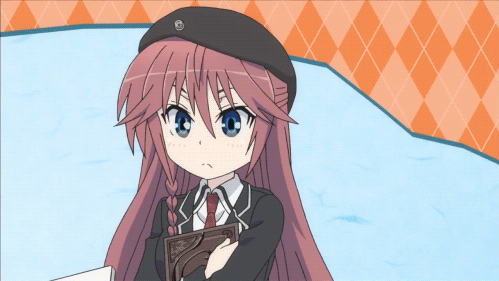

You know, I see a lot of hate thrown around simply because there are anime that are tagged as ecchi. Why is it that if you mention ecchi and harem to certain people that their immediate reaction is a sigh? There are hundreds of people that feel this way and it's not exactly mind blowing as to why this is. Love 'em. Hate 'em. Sure, maybe it isn't exactly my cup of tea, but I wouldn't go as far as to say that I despise it or that it's worthless. Even some of the most influential works of all time in anime have some fanservice (i.e Neon Genesis Evangelion). This isn't to bash Neon Genesis Evangelion for its fanservice. To be frank, Hideaki was smart enough to not have the fanservice as a focal point of the show. It's there to attract viewers, yes, but it isn't a main trait for any of the characters. Well, they all were interesting with their own personality. Tropes, cliches, whatever. They're there.
It's not facile to come by an anime that is completely refreshing such as this masterpiece known as Serial Experiments Lain.
Obligatory Lain picture
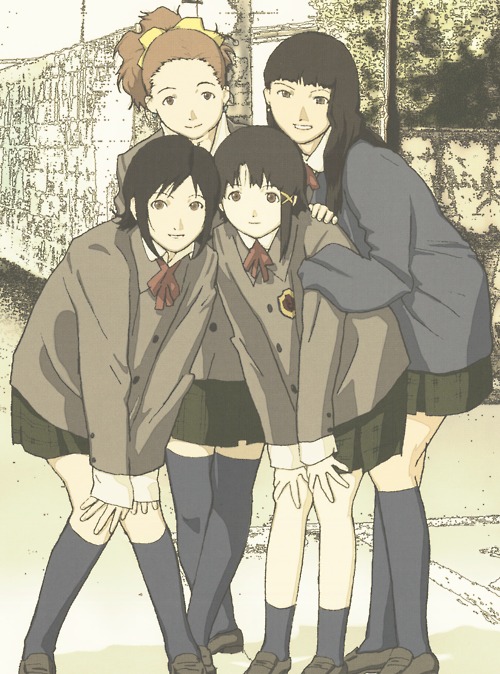
Obligatory Lain picture

It's not a bad thing if they do contain less than preferable eye-rolling scenes. It's just that some people, such as myself, are real fussy with what they watch and that has its subjectively good and bad points. Some people like to discuss it without having the senseless tirades and just talk about the topic at hand. Other times, people criticize ecchi (or any other topic) without actually specifying as to what their reasoning is. I see it all too often where someone brings up the topic in the forums, be it Hummingbird, Anime-Planet, or Myanimelist, and there is always someone who usually ends up ruining what could have been a good discussion. It's actually kind of hilarious when it gets to that point but anyways - is it even worth arguing over? People are not so easily swayed or convinced to believe otherwise and by no means am I trying to convince anyone other than my future self should I happen to still be around to read my own blogs.
So Internet Wired, I've prattled in a quite disorganized manner once again but that's okay. It's not that important enough to debate as all this is all just another peek into my mind. So to summarize this, enjoy what you love to watch - cliches and such are bound to be present in any case. Who knows? The chance that I will grow to like this genre in the future is very slim - but the possibility still exists. So tell me, future self, have your ideas changed? ^^
Posted by Sirani | Aug 15, 2015 8:43 PM | 4 comments
August 10th, 2015
Aspect is perception
Anime Relations: Shinseiki Evangelion, Serial Experiments Lain, Haibane Renmei, Ergo Proxy, Tenshi no Tamago, School Days, Jinrui wa Suitai Shimashita, JoJo no Kimyou na Bouken (TV)

One of the things that people do on an anime tracking website (i.e Myanimelist) is to rate their anime and manga. That's not exactly something new, right? Recently, I watched this very intriguing video where the person explaining his ideas coincided with many of my own. So I decided to create this post as to better express how exactly something is rated or how I would label or mark an anime as terrible, bad, good, and/or great. In anime, you either have a linear, chronological story or what is more convoluted and conceptual such as layered story telling that includes interpretable material. Of course, that's not to say that anime can't be both because there are. For the sake of making it easier to understand I will explain some of this through anime that I have already seen that contains examples of the aforementioned concept.
In a layered format, you would have what is in front of you. What you are seeing with your own eyes. This would include the story, characters, background, art, animation, and basically what one would call an aesthetic. What you have after this would be known as the undertone of the story, or in other words, what one would call the second layer. This is known as the symbolism, morals, themes, subtext, and undertones of the story itself. It is this format that usually has various theories as to what the anime is trying to get across to its viewer. What it is trying to tell you. These are found in abundance. Stories such as Serial Experiments Lain, Ergo Proxy, Neon Genesis Evangelion, and Haibane Renmei would typically fall into this format.
The problem with this format is that many of the major so called "elitists" and condescending people that worship an anime tend to, of course, look down on people who don't understand or get what the messages or themes of it are/were. Maybe I should have worded this differently. It isn't exactly a problem but it can be for those who want to watch it and better understand it. Basically, ignore what everyone else is saying and work up your own conjecture. It's what has been asked before: have you ever watched an anime and thought of it in negative light upon finishing said anime and then had the following sentence shoved into your face "you just didn't get it"? This is what irks me because this can imply a number of different things.
Dear God, trolls would not hesitate in the slightest to jump at the chance.
First, this will imply that you are either too stupid to understand what is going on or that you simply cannot comprehend what is going on and have given up trying. The thing is, most people who readily believe this are already close-minded and that, in turn, will pretty much limit any discussion as it would become redundant with even more nonsensical statements thrown at you. It's a harmless statement of course since trolls are but everywhere and are easy to pick up on the bait unless of course you fall for it. Second, a lot of people would give you the cliche line of "once you understand it, you will be enlightened" or "you will see its greatness and what its worth once you understand it." I'm no exception to this as I, too, have said something similar to this before. In retrospect, even though it was with good intention, it was probably wrong of me to say such things as it would probably piss other people off. To better explain this, I suppose you could say that any anime is amenable to the criticism it gets. In other words, every anime is open to being the subject of what could be the topic of discussion - to analysis and interpretation.
You can pick up any anime, no matter how dumb, stupid, silly, or mediocre it may seem and still have a conjecture of what it is trying to say - even if the majority would say something that it is a disposable worthless title. The one that comes to mind right away for me is School Days. For those of you who already know me, you will know that this is one of my least favorite anime in existence. For those of you who don't, well now you know. Thinking back now, it probably isn't that bad as I initially made it out to be and is not deserving of the 1/10 score that I had given it, but I won't justify it in the midst of all this rambling that I'm doing. There are three main perceptions about School Days that is notoriously known throughout the anime community. One, it is a bad anime. Plain and simple. From a different angle, it is just a deconstruction of the harem genre. Thirdly, one could say that it is a bad attempt at the deconstruction of the harem genre. Thousands of people could call this a masterpiece as it is something that is quite different from the harem genre. It is the analysis that has many people catering to it because it's done something differently in a very lackluster story. This is where I had initially fallen into. I must say that I'm not in the very least happy about myself viewing it in this perspective as I had not given it the chance.
But that's another rant for another time.... and that time is now.
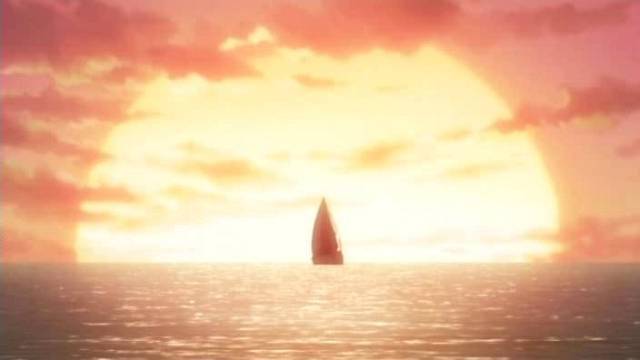
See and here is what I think happened. I made the unwise decision to view this anime because of all the notoriety, attention, and infamy that this show was given. It is because of this that I most likely went into the anime thinking it would be awful and, well, that's exactly what happened. I went in and came out with the same mindset and that is pretty much what close-mindedness does. Objectify it however I want, but I certainly won't say that it's by any means a masterpiece as I still believe it to be a less than subpar anime with very little to offer - regardless of which perspective I now view it under.
Anyhow, the point of all this School Days mumbo jumbo is that no matter how bad an anime can subjectively be, it can still attract a heap of theories. An anime may not try to be outstanding. It is us, the viewers who make it outstanding. It is us, the viewers who view it in a different perception that makes said anime a masterpiece. So with all this in mind, I couldn't call someone out for naming Serial Experiments Lain the worst psychological anime that has ever existed even though I probably will but it is all very subjective. And in my opinion, there is a huge range with anime that fall into the layered format. You see many anime that try to be as cryptic as possible, yet lack the very first layer that includes imagery and aesthetic. It's not so much an issue for me, however it does help if the characters and aesthetics are also memorable in an anime that is already going to such ambiguous lengths. For example, many would call the film [u]Angel's Egg[/u] a masterpiece for using heavy symbolism with a wide range of themes; however, one look at it, and you'll see how it differs so greatly from other anime.
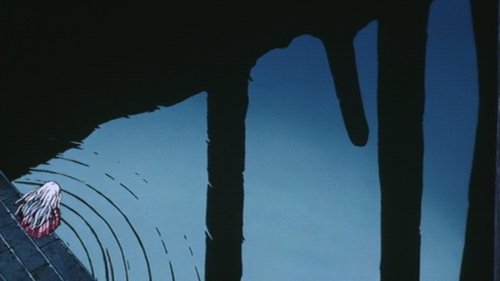
The 2 characters hardly ever interact. To give you an idea, there is less dialogue in this 71 minute film than there is in one episode of Serial Experiments Lain. I'd give this film diamonds for its use of the second layer, but it isn't exactly memorable in its use of aesthetics since it is very lackluster. I suppose that the ideal would be for the two layers to have some unity or be in equilibrium. This is where some of my favorite anime would fall under.
To give you an idea of what I mean by this I will use Neon Genesis Evangelion as to avoid being biased and not overuse Serial Experiments Lain as an example. It is a well known fact that Neon Genesis Evangelion had a major fallout in its last 2 episodes. This of course was handled very well in the aftermath, having released End of Evangelion and its Rebuild films. It is also noteworthy to mention that many people would analyze the hell out of NGE, trying to get behind the scenes, trying to understand what the meanings were behind the names that Hideaki gave them. Let me just be clear about it right now. Hideaki, the director, has insisted that every term, technology, and name in the series were of minor importance to the show. It was there for aesthetic purposes and nothing much more to it than that. Yet, that didn't stop everyone from looking away. Look at all of the reviews and you're bound to see the mentions of symbolism and otherworldly theories as to what they mean. I personally fall into the latter. This ties in with both of the layers. If you have a combination of these two, you're bound to enjoy it immensely. That is to say that you enjoy reading between the lines and looking for more. If someone says that none of it is worth looking at, then that's okay. Enjoyment alone is what most people would rate upon anyways since it is an entertainment medium.
Well okay, cool story and all but what is it about interpretation and symbolism that makes it good? Why is that important?
I don't think I can really convince anyone otherwise as to why this is, in my opinion anyways, an important part of anime. I will briefly talk about why I do like it however. See, when it comes to interpretation of a story, it isn't about just watching anime, pointing to one scene and saying "whoa, this scene in Serial Experiments Lain is referencing technological advancement" no it's not just about that. It goes way more than just a simple reference. It is about taking notice of what is going on. The little details that the animators, creators, directors and all insert into the anime. To put it bluntly, if you like digging into the minds of the characters, then this will be of importance to you to some extent. If not, well then that's okay, you don't have to like this layer to fully enjoy it.
Looking back now, I remember at one point mentioning that the final 2 episodes of Neon Genesis Evangelion bothered me so much. I don't remember who I had this conversation with, but I know it was with several people of HOC on Skype. Anyways, the funds weren't there for NGE which explains why the quality kept dropping as one further progressed through the show, until finally, the last 2 episodes animation quality were just thrown out the window. I resented NGE for this but looking back, it really doesn't bother me all that much and I don't remember as to why this bothered me so much to begin with since it was basically a psychoanalysis of the characters in these two episodes. Many speculate it to be this way due to the budget and funds and what not despite Toshio Okada's insistence. Others would speculate that because the staff was in such a frenzy, they input their stress, disorder, and emotions into the anime. Whatever the case may be, I still find the show and all of the films (except for Death and Rebirth) to be great.
The distinction is clear in this last episode.
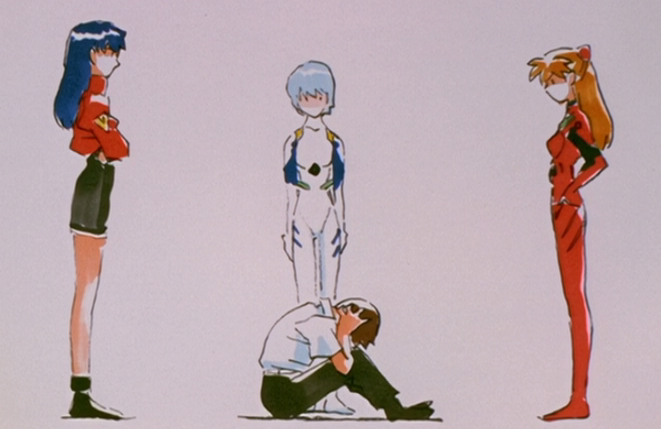
In any case, whenever I look back at my favorite anime that I've rewatched and plan to rewatch, I don't just look at one of the layers, no. I look at everything there is. The story, characters, as well as the second layer. I mean, I might not agree with everything I've said in this blog post in the future as one might say that it is just one over complicated subtext that is separating what people call enjoyment but in the mean time, layered story telling in anime is what makes it great for me and nothing else really needs to objectify my stance in that regard.
So, Internet, while this post may have been quickly written up and a bit disorganized, I hope that my future self (and perhaps others) is able to comprehend what has been typed and not say "I don't get it." I don't believe one layer is more important than the other is all I'm trying to say.
And well, I suppose to sum it all up in one sentence, it would have to be that:
It's not about whether or not you are able to understand the story, it's about whether or not the story makes you want to understand it.
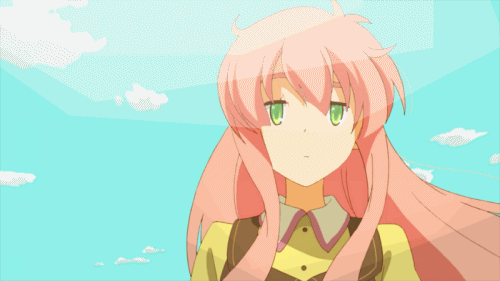
Posted by Sirani | Aug 10, 2015 11:28 AM | 1 comments
August 7th, 2015
TBA
Anime Relations: Serial Experiments Lain
Hello, Internet.
If you are here viewing this page, then it is most likely because:
Anyhow, welcome to my blog. This blog is intended as a place for me to express myself. I will be talking about my life, past and/or present, various subject matter, and, of course, anime and quite possibly a number of rants.
If you find yourself here, then thanks for caring enough to check out my blog and perhaps maybe drop a comment or two. It is just intended for me to some day go back and read my own mind in text. Who knows, maybe I'll change as time goes on - but it'd certainly be neat to find out. So for now, all I can really say is welcome to my blog.
If you are here viewing this page, then it is most likely because:
- 1 - You are bored.
- 2 - You find me fascinating. ( ^^ )
- 3 - You are one of the few people I've ever interacted with on this site and are perhaps one of the even fewer number of people that I talk to.
Anyhow, welcome to my blog. This blog is intended as a place for me to express myself. I will be talking about my life, past and/or present, various subject matter, and, of course, anime and quite possibly a number of rants.
If you find yourself here, then thanks for caring enough to check out my blog and perhaps maybe drop a comment or two. It is just intended for me to some day go back and read my own mind in text. Who knows, maybe I'll change as time goes on - but it'd certainly be neat to find out. So for now, all I can really say is welcome to my blog.
Posted by Sirani | Aug 7, 2015 5:24 PM | 3 comments

